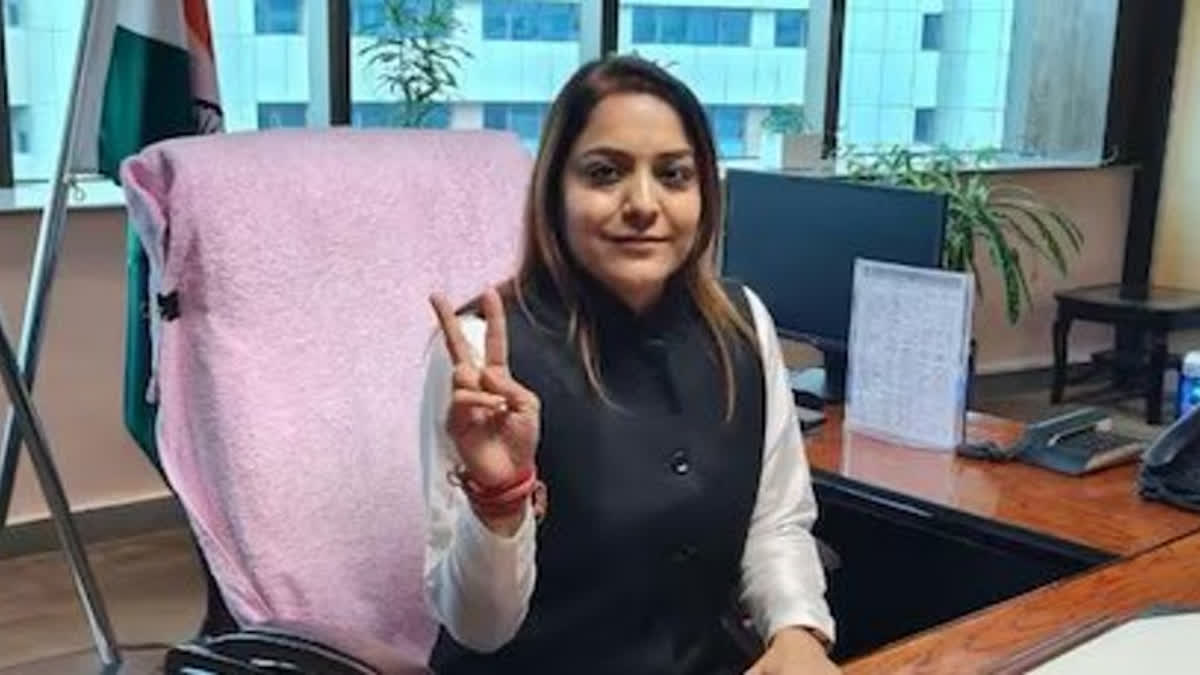New Delhi:In the second time in less than three months Shelly Oberoi, the Mayoral candidate of Aam Aadmi Party (AAP), has been re-elected as Mayor of Delhi. Aale Mohammad Iqbal, also from the AAP, was unanimously elected as Deputy Mayor. Oberoi was unanimously elected after BJP councillors decided to withdraw from the municipal mayor and deputy mayor elections, citing the AAP's refusal to allow the formation of permanent committees and ward committees as the reason behind their decision.
The Mayor election process began with Mukesh Goyal serving as the presiding officer. The BJP withdrew Shikha Rai's name from the mayoral election, resulting in Shelly Oberoi being unanimously elected as the mayor of the national capital. The AAP had won the mayoral election previously, with Oberoi and Iqbal both being elected.
Earlier on February 22, Oberoi had defeated BJP’s Rekha Gupta to become the mayor of the city. In the polls, Shelly received 150 votes, while her rival Rekha received 116 votes. A total of 266 votes were polled during the Mayoral Polls held in the Civic Centre. This election of Shelly last time not only ended the three-month-old impasse but also the BJP’s 15-year rule of the Municipal Corporation of Delhi.
The election of Mayor was needed within three months because according to the Delhi Municipal Corporation Act, 1957, mayoral elections should be held every year. According to the act the tenure of the old mayor ends at 31st March and the House should choose its new mayor on April 1. As AAP had to go for a prolonged battle for nearly three months on the issue of nullification of the voting rights of the nominated members so Oberoi got elected only on February 22, making her the mayor with the shortest term.
The AAP had been unable to elect its mayor despite having the people's mandate, as the BJP was trying to get the ten aldermen nominated by the Lieutenant Governor to vote in the Mayor election. Later, the Supreme Court nullified the voting eligibility of the nominated members. The MCD has an electoral college of 274 members, including 250 elected councillors, seven Lok Sabha and three Rajya Sabha MPs from Delhi, and 14 MLAs. The AAP has 150 votes, including 134 elected councillors, whereas the BJP presently has a strength of 113 votes. If the aldermen were allowed to vote, then the BJP's strength would have climbed to 123 votes.
The AAP has 132 councillors in the Municipal Corporation of Delhi, while the BJP has 106, Congress has 9, and there are 3 independent councillors. Of the total 274 votes cast for the elections, including Lok Sabha and Rajya Sabha members and nominated MLAs from Delhi, 147 votes were in favor of the AAP, while the BJP had 116 votes. If there is no cross-voting, then it is certain that the AAP's candidate will be elected as Mayor.
The AAP has been in power in Delhi since 2015, and this victory in the MCD is a significant milestone for the party. The MCD is responsible for crucial civic functions in the city, such as sanitation, healthcare, and education. The AAP's election victory could signal a change in the political landscape of Delhi, with the BJP losing control of an important institution that it has ruled for 15 years.
